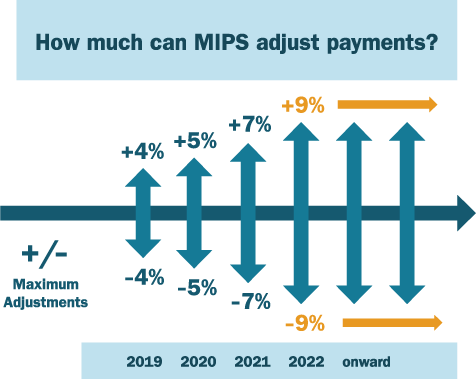CMS will automatically use the Hospital Value-Based Purchasing (VBP) Program score of a facility-based clinician or group in lieu of a Merit-based Incentive Payment System (MIPS) score if the VBP score is higher than the clinician's combined Quality and Cost score under MIPS. CMS calculates the facility-based score automatically using the facility's Total Performance Score determined through the Hospital VBP Program. Surgeons are not required to opt-in or take any specific action to be eligible, but should use the QPP Participation Look-Up Tool to determine whether they meet the definition of "facility-based" and to which facility they are attributed. Surgeons who are eligible for facility-based scoring can still report MIPS Quality measures, but CMS will automatically use the facility's score if it is higher than their combined Quality and Cost MIPS scores. CMS will provide details about how surgeons were scored for MIPS through the 2020 MIPS feedback reports, which are expected to be released in July 2021.
Individual clinicians are considered facility-based if they meet all the following criteria:
- Billed at least 75 percent of covered professional services in a hospital setting.
- Billed at least one service in an inpatient hospital or emergency room and can be attributed to a facility with a Hospital VBP score.
- If a clinician works at multiple facilities, CMS will attribute the clinician to the hospital where they provided services to the greatest number of Medicare beneficiaries during the determination window using the same TIN/NPI combination.
- A group practice would be considered facility-based if 75 percent or more of the MIPS-eligible clinicians in a group are deemed facility-based. CMS will attribute the group to the hospital where the plurality of clinicians in the group were attributed as individuals.
For the 2021 MIPS performance year, CMS will rely on FY 2022 Hospital VBP Program scores for facility-based scoring. FY 2022 hospital scores will not be released to the public until early in 2022, but clinicians should be able to view FY 2021 hospital scores here in early 2021 to get a general sense of where a facility falls compared to others. Some surgeons are tied to high-performing facilities and could rely on the facility score to achieve a high MIPS score, but that may not be the case for all, making it important to understand how your facility has historically scored and compared with other facilities in the Hospital VBP Program.
Please note: Hospital-based status is different than facility-based status. Hospital-based status has different eligibility criteria and is used to determine if a clinician or group is exempt from the Promoting Interoperability (PI) category. As mentioned, facility-based status is used to determine whether the clinician or group is eligible for facility-based scoring. Although the statuses are different, it is possible to fall into both categories. Surgeons who are considered both hospital-based and facility-based will receive an automatic reweighting of PI to Quality and are also eligible to have their facility's Hospital VBP Program score applied to Quality and Cost.


